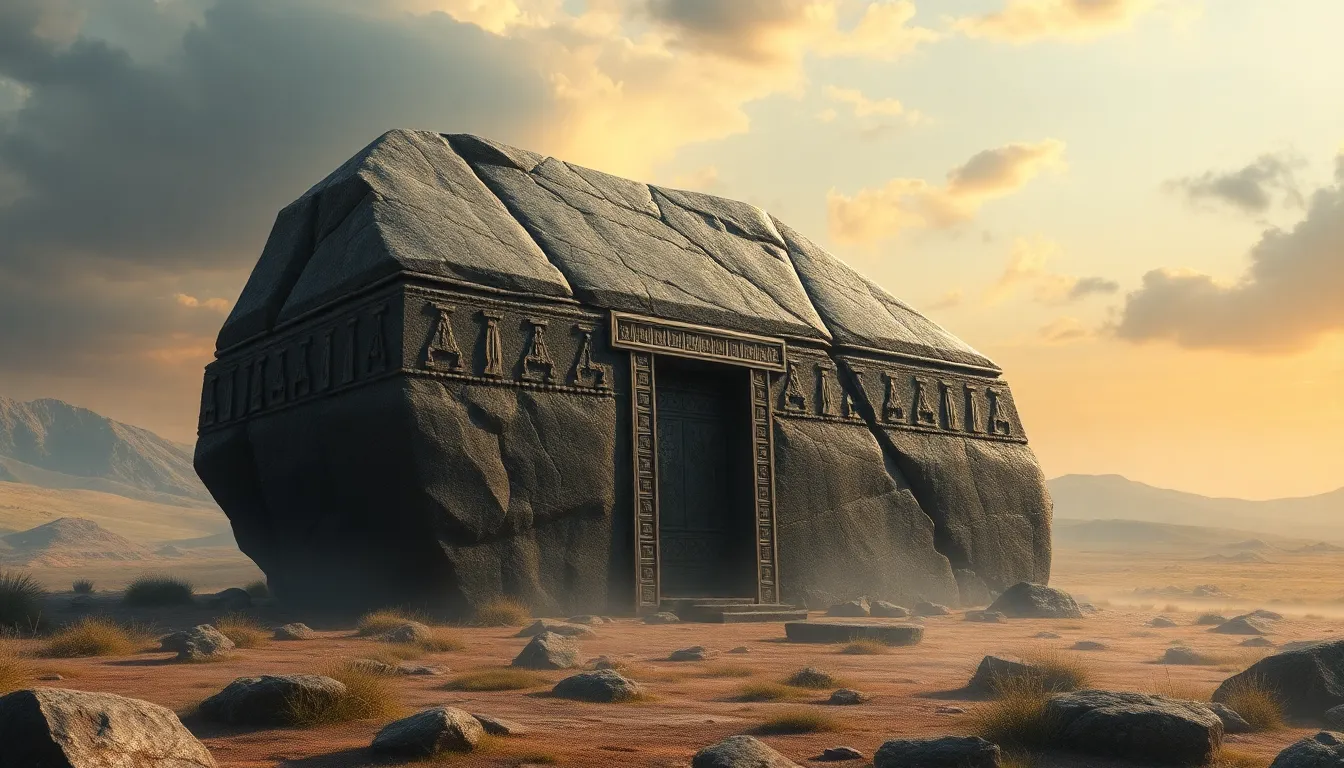The Stone of Wisdom: Ancient Knowledge Encased in Myth
Introduction: The Enigmatic Stone of Wisdom
The Stone of Wisdom is a legendary artifact that has captured the imagination of various cultures throughout history. Often depicted as a mystical object imbued with ancient knowledge, this stone represents the quest for understanding and enlightenment. Across different civilizations, the Stone of Wisdom serves as a symbol of the search for truth and the mysteries of existence, embodying the profound connection between wisdom and the natural world.
The Origins of the Stone of Wisdom
The origins of the Stone of Wisdom can be traced through a tapestry of historical accounts and legends. Many cultures have their own stories regarding the stone’s creation and its powers. For instance, some legends suggest that the stone was formed at the dawn of time, imbued with the wisdom of the universe. Geographically, the lore surrounding the Stone of Wisdom is often tied to sacred sites, such as:
- The Great Pyramids of Giza in Egypt
- The ziggurats of Mesopotamia
- The ancient temples of Mesoamerica
These locations are not only significant in their own right but also serve as focal points for the myths surrounding the stone.
Cultural Interpretations of the Stone Across Civilizations
Different civilizations have their unique interpretations of the Stone of Wisdom, reflecting their values and beliefs about knowledge and enlightenment. In Ancient Egypt, the stone was often associated with the god Thoth, the deity of wisdom and writing. Egyptians believed that the stone could grant access to divine knowledge.
In Mesopotamia, the stone was linked to the Epic of Gilgamesh, where the protagonist seeks eternal wisdom and immortality. The stone symbolizes the pursuit of knowledge that transcends human limitations.
Meanwhile, in Mesoamerica, the stone was revered by the Aztecs and Mayans, who believed it contained the secrets of the universe and the cycles of life. It was often depicted in their art and rituals, signifying the connection between the material world and the spiritual plane.
Symbolism of the Stone in Mythology
The Stone of Wisdom is rich in symbolic meanings, often representing the dual nature of knowledge. Myths surrounding the stone emphasize that wisdom is not merely the accumulation of facts but encompasses understanding and insight. Some key symbolic interpretations include:
- Knowledge as Power: The stone represents the power that comes from understanding and enlightenment.
- Transformation: The journey to acquire wisdom is often depicted as a transformative process, reflecting personal growth.
- Connection to Nature: Many myths highlight the stone’s ties to the natural world, suggesting that true wisdom comes from harmony with nature.
The Stone of Wisdom in Religious Texts and Traditions
The Stone of Wisdom appears in various sacred texts and religious traditions, often symbolizing divine guidance and spiritual insight. In the Judeo-Christian tradition, references to “stones” can be found in texts like the Bible, where stones often symbolize strength and permanence. The stone is also mentioned in the context of wisdom in Proverbs, where it is associated with the pursuit of understanding.
In Eastern religions, such as Buddhism and Hinduism, stones are often seen as representations of enlightenment. The concept of ‘Siddhartha’ in Buddhism reflects the idea that enlightenment is akin to discovering a precious stone hidden within oneself.
Archaeological Discoveries and Their Implications
Archaeological discoveries have shed light on the cultural significance of the Stone of Wisdom. Numerous artifacts, including inscriptions, statues, and ceremonial objects, suggest that ancient civilizations held the stone in high regard. Some notable findings include:
- Hieroglyphics in Egypt: Ancient texts reveal references to a “stone of wisdom” used in rituals and ceremonies.
- Mesopotamian Tablets: Clay tablets depict stories of heroes seeking the stone as a means to attain knowledge and immortality.
- Mesoamerican Ruins: Artifacts such as altars and carvings illustrate the importance of the stone in religious practices.
These discoveries contribute to our understanding of how the Stone of Wisdom was perceived and revered in ancient contexts.
Modern Interpretations and the Legacy of the Stone
In contemporary thinking, the Stone of Wisdom continues to inspire scholars and philosophers. Modern interpretations focus on the allegorical nature of the stone, viewing it as a metaphor for the pursuit of knowledge in an increasingly complex world. The stone’s legacy is evident in various fields:
- Philosophy: Thinkers explore the relationship between wisdom, ethics, and human experience.
- Psychology: The stone’s symbolism is reflected in concepts of self-awareness and personal growth.
- Education: The quest for wisdom informs modern educational practices, emphasizing critical thinking and holistic learning.
The Stone in Popular Culture
The Stone of Wisdom has permeated popular culture, finding its place in literature, film, and art. Its depiction often reflects the timeless human quest for knowledge. Examples include:
- Literature: Books such as “The Alchemist” by Paulo Coelho explore themes of wisdom and the journey toward self-discovery.
- Film: Movies like “Harry Potter and the Philosopher’s Stone” use the stone as a symbol of ultimate knowledge and power.
- Art: Various artists have depicted the stone in paintings and sculptures, often highlighting its mystical qualities.
Lessons from the Stone of Wisdom: Relevance Today
The myths and teachings associated with the Stone of Wisdom impart valuable lessons that remain relevant in today’s world. Some key takeaways include:
- The Importance of Lifelong Learning: The journey for knowledge is ongoing and requires an open mind.
- Embracing Transformation: Wisdom often comes from overcoming challenges and personal growth.
- Seeking Harmony: True wisdom involves understanding one’s place in the natural world and fostering connections with others.
Conclusion: The Enduring Mystery of the Stone of Wisdom
The Stone of Wisdom remains an enduring mystery, captivating the minds of those who seek knowledge. Its rich tapestry of myths and cultural interpretations serves as a reminder of the timeless human desire for understanding. As we navigate the complexities of modern life, the lessons imparted by the Stone of Wisdom continue to resonate, urging us to seek knowledge, embrace transformation, and strive for harmony in our lives.


